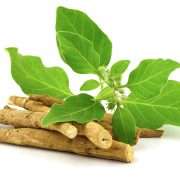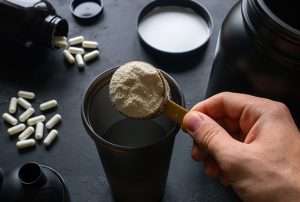Top 5 plant based protein tips for men to avoid diseases in monsoon

The Indian monsoons bring grey skies, the sound of raindrops drumming against windowpanes, and long days spent wishing one was cuddled up in bed, warm and comfortable. The monsoons also bring a slew of seasonal maladies, such as the common cold and flu, fever, viral infections. This is the time of year when our immune systems are typically weakened by seasonal illnesses and require a special boost to keep us in good shape.
While the monsoon season provides relief from the summer heat, it also increases the risk of infections, waterborne diseases, skin allergies, and other issues such as food poisoning, indigestion, colds, flu, viral fever, and so on. As a result, it is critical to maintaining good health during the rainy season by eating a nutritious diet. During the monsoon, one’s immune system is also compromised, necessitating extra precautions such as mindful eating, physical activity, and hydration.
This is where plant based proteins can help!
What is plant protein
Plant protein is a protein found only in plants, not in fish or animals. It can include a wide range of foods, but the majority of plant proteins are found in nuts (raw and roasted), legumes, seeds, and beans. Protein is also found in potatoes and some vegetables, such as broccoli, kale, asparagus, and mushrooms.
Importance of plant-protein
Protein, one of the three essential macronutrients, is critical for the immune system. It is also beneficial for wound healing, muscle building, and bone density. While there are many protein-rich products available, plant-based sources should be preferred because they also provide a variety of supportive nutrients such as folic acid, selenium, zinc, phytonutrients, and more. They are also high in fibre and have an ideal protein-to-carbohydrate ratio. For those wondering which plant based proteins to include in their diet this monsoon, here are the top five plant-based protein sources to include in your daily meals.
1. Sesame seeds
Sesame seeds, India’s gift to the world, are tiny, oil-rich seeds high in protein. A tablespoon of sesame seeds contains about 3 grammes of protein, and while they have a low lysine content – an essential amino acid – when combined with high-lysine plant proteins like kidney beans and chickpeas, they provide a high protein boost to one’s diet. Consuming hulled and soaked sesame seeds increases protein availability. According to reports, eating sesame seeds on a regular basis may help reduce cholesterol and triglycerides, both of which are risk factors for heart disease. Furthermore, they are high in fibre, which is essential for digestive health.
Sesame seeds are also high in calcium, magnesium, selenium, and iron, making them ideal for vegans and lactose intolerant people. It is very simple to incorporate sesame into one’s diet, from sprinkling it on top of salads and stir-fries to munching on sesame brittle to satisfy one’s sweet tooth.
2. Soy & soy products
This humble legume is brimming with surprises! Soybeans are the only plant-based food known to contain all nine essential amino acids, making them a complete protein source. Soybeans have a high protein content, accounting for 36% to 56% of their dry weight. Furthermore, soybeans are high in folate, calcium, fibre, iron, magnesium, phosphorus, and potassium. They also contain unique isoflavones, which make them ideal for growing children and menopausal women, and they have anti-aging properties. The best thing about soybeans is their versatility; they come in a variety of forms and are a cheap and easy ingredient to keep on hand in the kitchen.
3. Mangodi or moong dal wadi
This popular ingredient is made of moong dal, as the name implies. These are almost like sundried dumplings made from moong dal paste. The high protein content of moong dal is what gives mangodi its health benefits. Moong dal is a superfood that contains high-quality protein as well as other essential nutrients. 1 cup of cooked moong dal contains about 10-12 grammes of protein, as well as B vitamins and magnesium. Furthermore, it is incredibly light and easy to digest, which is enhanced by the way moong dal wadi is prepared. Soaked and spiced moong dal is ground into a batter, which is piped out into small sections and dried for 4-5 days in the natural heat of the sun. This method of preparation increases protein digestibility by about 30%, allowing you to consume more protein from the same amount of food. Mangodi is not only healthy and delicious, but it is also simple to prepare and store.
4. Sprouted moth beans
Moth beans, also known as matki, are a high-protein native legume used in a variety of Indian cuisines. This tiny legume contains approximately 343 calories in raw form, with 23 grammes of protein. It is well understood that sprouted legumes have higher nutrient availability and absorption. Overnight sprouting of moth beans improves the digestibility of the beans’ protein content. It also improves the body’s absorption of the beans’ fibre, Vitamin C, B vitamins, and calcium. These beans can be used in a variety of ways, including parboiled, fully boiled, and even as matki flour. To begin incorporating matki into one’s daily diet, try adding these protein-rich legumes to classics like matki amti or matki usal for a combination of taste and health.
5. Red amaranth leaves
The only leafy vegetable on this list, red amaranth leaves, or lal math as they are more commonly known, are known for much more than their vibrant red colour. These leaves are high in protein and have a variety of health benefits. 8-10 grammes of protein are found in one cup of cooked red amaranth leaves. Furthermore, these leaves are high in iron, calcium, magnesium, selenium, and Vitamin K, as well as anthocyanins and dietary fibre. Amaranth, which is high in antioxidants such as gallic and vanillic acids, is thought to lower the risk of heart disease, inflammation, and cholesterol.
There are numerous delicious ways to add some colour and good health as a staple in one’s diet, from making an easy and tasty amaranth bhaji to whipping up amaranth parathas.
Aside from their nutrient content, the above foods are excellent sources of high-quality protein because they are widely available throughout India. With so much to offer, especially in terms of immunity and overall health, these humble ingredients deserve to be celebrated – on our plates and as high-protein sources!
If you’re looking for plant-based supplements for weight gain you should definitely check out Plix’s range! It has some delicious supplements that are not only full of taste but are healthy too. Do check out Plix Plant-Based Mass Gainer that helps you gain weight and maintain a healthy gut.
FAQs
1. Do protein supplements help gain weight?
Weight gain supplements are an excellent way to help you gain weight. They help the body gain weight by increasing the production of certain hormones that promote muscle growth!
2. Which supplements can help me gain weight?
Supplements like vitamin C, calcium, vitamin B complex, branched-chain amino acids (BCCA), creatine and weight gain powders like Plix Plant-Based Mass Gainer can help in gaining weight.
3. How do weight gainer powders help?
Weight gainer powders have a formula that contains higher amounts of calories, protein, carbohydrates, and other nutrients. They promote healthy metabolic function by increasing your desire to consume a higher-calorie diet and quickly gain weight.
4. What are the benefits of Plix’s Plant-Based Mass Gainer?
It helps in building mass, supports muscle development & recovery and helps maintain a healthy gut with its antioxidant rich formula
5. What ingredients can help in bulking up?
The main ingredients that aid in bulking up are potato starch and barley malt extract. Carbohydrates provide long-lasting energy and aid in muscle regeneration, whereas proteins aid in muscle recovery. The combination of these two nutrients aids in bulking and steady muscle growth.













